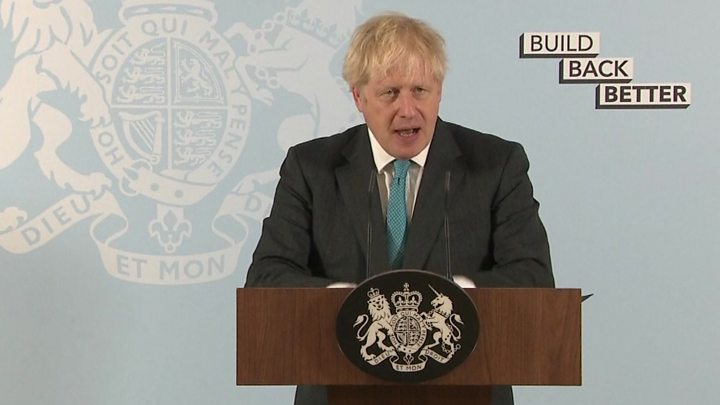The White House has opened an investigation into Princeton University, accusing it of civil rights violations after its president admitted racism exists at the school.
Earlier this month, Princeton President Christopher Eisgruber published a letter to the university community in which he acknowledged that the university has and continues to be shaped by systemic racism.
“Racism and the damage it does to people of color nevertheless persist at Princeton as in our society, sometimes by conscious intention but more often through unexamined assumptions and stereotypes, ignorance or insensitivity, and the systemic legacy of past decisions and policies,” he wrote, underscoring also that for most of Princeton’s history, the university “intentionally and systematically excluded people of color, women, Jews, and other minorities.”
“Racist assumptions from the past also remain embedded in structures of the University itself,” he added, noting that, for example, Princeton has at least nine departments and programs organized around European languages and culture, but only a single, relatively small program in African studies.
Editorial Cartoons on Education

The White House used that admission to justify an investigation.
“You admitted Princeton’s educational program is and for decades has been racist,” Robert King, assistant secretary of the Education Department’s Office of Postsecondary Education, wrote in a letter to university officials earlier this week. “The serious, even shocking nature of Princeton’s admissions compel the Department to move with all appropriate speed.”
The letter wasn’t the first time Eisgruber addressed systemic racism in the wake of nationwide protests over racial justice. In June, for example, the Board of Trustees voted to remove Woodrow Wilson’s name from the School of Public and International Affairs, which Eisgruber described as a “landmark moment in Princeton’s history.”
The letter instead served to update students on the steps Eisgruber had tasked the university administration to take to address systemic racism, including new funding for teaching, research and service projects related to racial justice, exploring the possibility of a new degree program for students from disadvantaged communities that are disproportionately impacted by systematic racism, diversifying the faculty, including by increasing by 50% the number of tenured faculty from underrepresented groups, and reviewing university benefits and policies with an eye for enhancing equity for employees in lower-paid positions, among many other things.
The Department of Education used those examples to bolster its charge against the university, arguing the steps outlined in Eisgruber’s letter amount to an admission by the university that it was excluding people based on race – and perhaps has been for decades – in violation of Title VI of the Civil Rights Act.
“Based on its admitted racism, the U.S. Department of Education is concerned Princeton’s nondiscrimination and equal opportunity assurances in its Program Participation Agreements from at least 2013 to the present may have been false,” King wrote. “The Department is further concerned Princeton perhaps knew, or should have known, these assurances were false at the time they were made. Finally, the Department is further concerned Princeton’s many nondiscrimination and equal opportunity claims to students, parents, and consumers in the market for education certificates may have been false, misleading, and actionable substantial misrepresentations.”
Princeton rejected the accusations in a statement, saying its “vigilant in its pursuit of equity,” while also continuing to stand by Eisgruber’s assertion about the prevalence of systemic racism on and off campus.
“It is unfortunate that the department appears to believe that grappling honestly with the nation’s history and the current effects of systemic racism runs afoul of existing law,” the university said.
The investigation into Princeton is just the latest pursuit of an elite, Ivy League school by the Trump administration, which has also pursued Harvard and Yale over issues of race.
Earlier this summer, the Justice Department determined that Yale University’s admissions process discriminates against white and Asian applicants by admitting at higher rates Black and Hispanic applicants with the same academic credentials – a conclusion that rang anathema to higher education policy experts, academics and college and university administrators who have been trying to find ways to make campuses even more accessible to Black and Hispanic students, along with low-income and other marginalized students, amid a national reckoning over the compounding inequity of the country’s education system.
Similar accusations it lobbed against Harvard were rejected in federal court last year, and the Supreme Court, which has upheld the use of race-based admissions practices for nearly four decades, most recently ruled in 2016 in Fischer v University of Texas at Austin that the state’s flagship university could continue using race as a factor in its admissions decisions.
It’s unclear whether the Trump administration plans to pursue other colleges and universities as they reckon with the impact of systemic racism, as hundreds of the country’s most elite institutions currently are, including by removing statues, renaming buildings and reckoning with ties to slavery.
The investigation, first reported in the Washington Examiner, prompted cheers on social media from Trump’s conservative supporters who said they were happy to see the weight of the law come down on “woke liberals” who have been “virtue signaling.” Others, meanwhile, called the move a politically motivated attack on a school that’s trying to reckon with a painful history in order to create a more just future.



More Stories
Covid: PM promises ‘radical’ shake-up of adult education
Tear gas isn’t banned; Jersey City seniors deserve better housing; Education Matters team should win | Letters
Unequal education: Pandemic widens race, class gaps in U.S. schools